Text
Scottish Gaelic
blàth
IPA: /pl̪ˠaː/
warm; tender, kind
From Old Irish bláith (“soft, smooth”), from Proto-Celtic *mlātis (“soft, tender”), *mlātos (“flour”), related to *meleti (“to grind, crush”).
Originally meant "ground soft".
Cognate with Welsh blawd (“flour, meal”).
WIKTIONARY
#…which would also make it cognate to молот (hammer) and possibly also to mjóllnir omg#semantic shifts are lovely 😅#gaelic#scottish gaelic#gàidhlig#celtic languages#etymology
15 notes
·
View notes
Text
@prinseparadox Oh, I see now! Thank you for correcting me on bhithidh and a bhios and giving such a thorough explanation with so many examples! Mòran taing :)

Tha ceist agam/Grammar question!
This is a very basic thing, but unfortunately I haven’t been able to get much clarity with the resources available.
I’m making a table with the most common forms of the copula is, and I’m struggling to fill some of the spaces (neither am I completely certain about the others):

It could be that certain forms are simply lacking altogether, but maybe I just didn’t manage to find examples because of how few texts in Gaelic are used by online dictionaries and machine translators.
In short, I’m quite confused and will be extremely grateful for any help!
14 notes
·
View notes
Text
Tha ceist agam/Grammar question!
This is a very basic thing, but unfortunately I haven’t been able to get much clarity with the resources available.
I’m making a table with the most common forms of the copula is, and I’m struggling to fill some of the spaces (neither am I completely certain about the others):

It could be that certain forms are simply lacking altogether, but maybe I just didn’t manage to find examples because of how few texts in Gaelic are used by online dictionaries and machine translators.
In short, I’m quite confused and will be extremely grateful for any help!
14 notes
·
View notes
Text
Days of the Week, Months & Seasons in Gaelic
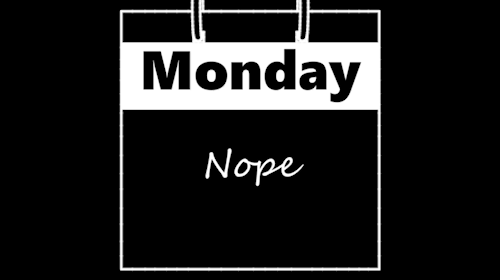
Diluan* — Monday
Dimairt*— Tuesday
Diciadain — Wednesday
Diardaoin — Thursday
Dihaoine* — Friday
Disathairne (also, rare: Disathurna)* — Saturday
Latha na Sabaid/Didomhnaich**— Sunday
seachdain (f) — week
an t-seachdain seo — this week
an t-seachdain seo chaidh — last week
an t-earrach — spring
an samhradh — summer
am foghar — autumn
an geamhradh — winter
mìos (m) — month
am mìos seo — this month
am mìos seo chaidh — last month
Am Faoilleach (m) — January
An Gearran (m) — February
Am Mart (m) — March
An Giplean (f) — April
An Cèitean (f) — May
An t-Ògmhios (m) — June
An t-Iuchar (m) — July
Lunasdal (m) — August
An t-Sultain (f) — September
Dàmhar (m) — October
An t-Samhain (f) — November
An Dùbhlachd (m) — December
bliadhna (f) — year
am-bliadhna — this year
___
*Many weekday names break Gaelic's golden spelling rule (broad with broad, slender with slender), as they used to be written as composite words joined by a hyphen: Di-luain, Di-màirt.
**Didòmhnaich (lit.: the Lord's Day) is traditionally used in many predominately Catholic and Episcopalian communities, such as Barra, Eriskay, and South Uist, whereas latha na Sàbaid (lit.: the Sabbath Day) is used in many Presbyterian areas, such as Lewis and Harris. Nowadays, however, this distinction does not affect much and both words are equally common.
#gàidhlig#gaelic#scottish gaelic#learning scottish gaelic#gaelic vocabulary#gaelic langblr#own#months#weekdays#seasons
54 notes
·
View notes
Text
#100daysoflanguages (gaelic)
day one, learn ten new words
sgian, knife
leabhar, book
sugh, juice
uachdar, cream
deasg, desk
garradh, garden
donn, brown
orains, orange
laghach, pleasant
leanabh, baby
(i learned a whole bunch of new words today so!!)
105 notes
·
View notes
Text
Beginners’ Gaelic resources
My mother’s family are native Gaelic speakers (Scottish Gaelic, not Irish), and the family that lives on the Western Isles still speaks Gaelic with their children. Many of my cousins are native bilingual speakers, but I grew up in England and was divorced from all of that. I tried to learn Gaelic as a child, but my grandparents actively discouraged it and eventually I stopped.
A while ago it occurred to me: how is it I am learning Chinese when I can’t even speak their language? Or Welsh, or any of the languages of the UK? How can I think about language endangerment in other countries when I can’t speak Gaelic, as someone with half of their family from the islands? It seems bizarre when you frame it in those terms.
Throughout the last few months Gaelic has been a casual on-again off-again project for rainy days, when Chinese gets too onerous. I’m keeping it light and fun, because I know I’ll be here for the long ride. Here are some of the resources I’ve been using:
1) Learn Gaelic with Jason: https://gaelicwithjason.thinkific.com - Jason is an American who developed an interest in Gaelic from a young age, with a degree from Sabhal Mòr Ostaig on Skye. This course is paid, but it’s one of the best things I’ve found - not just for Gaelic, but for *any* language. It’s a series of complete immersive videos about 20-30 minutes long requiring no prior knowledge, building on each other. Jason really understands the idea of comprehensible input, and I could learn a lot from him as a teacher. He also hosts the lessons in a yurt, is a terrible drawer, and wears a torque. Cool guy.
You can check out his videos for free here: https://www.youtube.com/channel/UCVX7RajLZmm8i7LEuli05tw
Jason also has an intermediate course where he teaches Gaelic through folk tales from Scotland and Ireland which I will definitely use once I get there. It’s a wonderful way into stories I heard as a kid and have partly forgotten.
2) Jason’s graded readers: Yes I love this man. He is a god. I’m not going to link to Amazon, but he has two graded readers and working on more. This is my favourite method of learning: of just opening a book and going ‘That..looks like…a verb?’ Very repetitive language, very high frequency, with an absolutely excellent glossary at the back - plus you get to read some lovely folk-tales. I’ve learnt so much from the one I have.
3) https://learngaelic.scot : this is one of the best websites there is. It is a modern, well-designed accumulation of Stuff - it has flashcards, links to the old BBC Alba video series (highly recommended), grammar explanations, audio, more flashcards. And also tips for each level. They also have a YouTube channel: https://www.youtube.com/channel/UCqZrsYGwxA0g1KA3nKB6Y_A
4) Speaking Our Language: https://www.youtube.com/watch?v=AxeyZABaHeI&list=PLX1DGbPK9r2HHyLN062V_ASbIh3xXpyvb - This is a great playlist, very nicely old-fashioned, of Gaelic spoken in context for beginners.
5) Learn Gaelic dictionary: https://learngaelic.scot/dictionary/index.jsp - This has sound, which is crucial
6) Beag air Bheag podcast on Spotify: https://open.spotify.com/show/34wGOU9sDTE7Vzg0qMexfv?si=2dF4YuqNQy6vdEL_smON4g&dl_branch=1 - Look. I understand none of this. But it’s an amazing podcast for intermediate learners, and I enjoy getting the occasional ‘agus’, ‘sin ceart’ and ‘ooooooo thaaaaaaaaa’. It’s nice to hear different accents and other learners too.
7) GLOSSIKA!!!!!! I know what you’re thinking but - and it’s a big but - Glossika is free for certain small languages, and Gaelic is one of them!!! I’d really really recommend it, but best probably after the first 200 or so words to get the most from it. Basically it’s spaced repetition listening, and spoken importantly at a normal pace. Use glossika.
(Also, for other languages, the free PDFs with standard IPA is available, uhh….quite easily…if you look..)
If anyone has any other resources you’d recommend for beginner level, let me know!! At the moment I’m more than preoccupied with Jason’s course and book, and Wiki as ever has all the grammar I need. For vocabulary, I’m not using Anki or anything specific yet, just memorising as I go along. It’s all very chill, and we’ll see how it goes.
I…don’t know how to say 加油 in Gaelic. But. You get the picture.
- meichenxi out.
355 notes
·
View notes
Text
mise nuair a thoisich mi a’ bhlog seo: tha mi ag ionnsachadh gàidhlig agus cuimris agus sin e. chan eil mi ag iarraidh ionnsachadh càil eile
mise a-nis: hmmm uill tha còrnais coltach ri cuimris gu mòr, agus bu chòir dhomh cleachd fraingis agus gearmaltais a-rithist, tha sin dìreach a’ dèanamh ciall, agus ‘s dòcha gum bi mi ionnsaich beagan ruisis no arabais cuideachd, tha iadsan inntinneach,,
6 notes
·
View notes
Text
One of my favourite linguistic things is looking at the ways different cultures classify colour.
In my research, I have found four words which convey "light" or "white" in Irish, depending on context - "bán" is the colour of fair skin and frost, "liath" is more of a light grey hair (but grey animal fur is "glas"), "fionn" is the warm brightness of sunlight and light blonde hair, and "geal" is more of a clean whiteness of teeth and snow.
A lot of the other colours have similar nuance - "glas" and "gorm" both convey blues, greens and grey, with varying intensity rather than hue. Then there's "uaine" which people tend to define as being more vivid or artificial greens
Similarly, "dearg" and "rua" both mean red - but the former is for brighter reds like blood androses, and the latter is the earthy red of hair and rust
An extra note on skin and hair: generally in Celtic languages, when we call someone a colour, we mean hair not skin. "Tá sí donn" (literally "she is brown") means that she has brown hair, not brown skin. This is presumably because, for a long time, most people speaking these languages would've been white, and therefore distinguishing people by hair colour would've made more sense. If you want to specifically refer to black skin, the word used is "gorm" which generally means blue.
Tl;dr - colour is really complicated
Some sources:

https://www.bitesize.irish/blog/color-me-irish/
854 notes
·
View notes
Text
Body parts in Gaelic
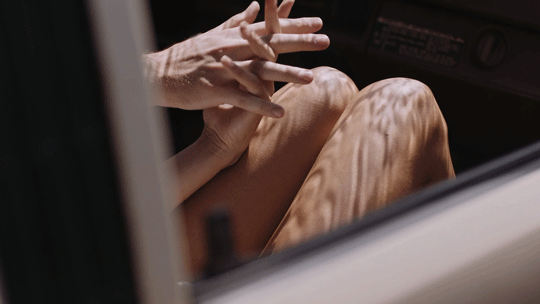
corp (m) — body
gualann (f) — shoulder
gàirdean (m) — arm
làmh (f) — hand
cas (f) — leg, foot
broilleach (m) — chest
balg (m) — belly
druim (m) — back
bràigh (m) — neck, throat
ceann (m) — head
aodann (m) — face
cluas (f) — ear
sùil (f) — eye
sròn (f) — nose
beul (m) — mouth
teanga (f) — tongue
falt (m) — hair
liath — grey (hair)
ruadh — ginger, red (hair)
bànfair — light, blonde (hair)
àrd — tall
goirid — short
caol — thin
reamhar — plump, fat
glan — clean
salach — dirty
bòidheach — beautiful, pretty
grànda — ugly, horrible
fallain — healthy
goirt — sore
tinn — ill, sick
maol — bald
#gàidhlig#gaelic#scottish gaelic#learning scottish gaelic#gaelic vocabulary#vocabulary#body#langblr#gaelic langblr#own
55 notes
·
View notes
Text
halò a’ chàirdean! ‘s mise lucian agus tha mi ag ionnsachadh gàidhlig agus cuimris. tha mi nam thoisichear sa chuimris ach tha mi air ionnsachadh beagan gàidhlig aig an oilthigh. tha beurla, beagan fraingis agus beagan gearmailtis agam cuideachd, ach bidh mi a’ bruidhinn gàidhlig air a’ bhlog seo gu meud mo chomais.
ma ‘s e blogair na cànain a th’annad agus ma tha thu a’ postachadh sa ghàidhlig, mu dhèidhinn gàidhlig, sa chuimris, no mu dhèidhinn cuimris, roinn am brath-bloga seo agus seallaidh mi air a’ bhlog agad. mòran taing! 💙
hello friends! i’m lucian, and i’m learning gaelic and welsh. i’m a beginner in welsh but i’ve done a bit of gaelic at uni. i also speak english and a little bit of german and french, but i’ll be speaking gaelic on this blog to the best of my ability.
if you’re a langblr who posts in or about gaelic or welsh, reblog this post and i’ll take a look at your blog. thanks! 💙
44 notes
·
View notes
Text
Colours in Scottish Gaelic

dath (m) — colour
dorcha — dark
ban — fair
dubh — black
geal— white
dearg — red
buidhe — yellow
uaine — green
gorm — blue, dark blue, natural green
liath — light blue, grey
glas — grey
donn — brown
orains — orange
purpaidh — purple
pinc — pink
#vocabulary#colours#colors#gàidhlig#scottish gaelic#gaelic#learning scottish gaelic#gaelic langblr#langblr
23 notes
·
View notes
Text
"Gaelic as a living community language is dying. The illness is terminal. Gaelic as a language may survive, but Gaelic as a key to an entire culture, a way of being, an approach to life, a lens through which the world is seen: that is not going to make it."
7 notes
·
View notes
Text
Family vocabulary in Scottish Gaelic
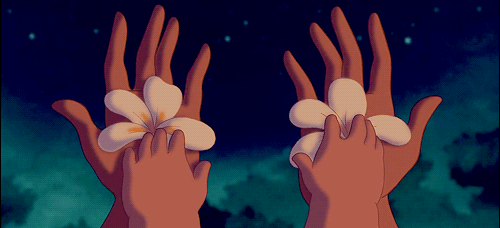
teaghlach (m) — family
pàrant (m) — parent
màthair (f) — mother
athair (m) — father
pàiste (m) — child
clann (f) — children, offspring
leanabh (m) — baby
nighean (f) — daughter
mac (m) — son
piuthar (f) — sister
bràthair (m) — brother
piuthar/bràthair leth-aon — twin sister/brother
duine (m) — man/husband (when possession is indicated: “an duine agam”)
bean (f) — wife
seanair (m) — grandfather
seanmhair (f) — grandmother
uncail (m) — uncle
antaidh (f) — aunt
mac-peathar (m)/mac-bràthair (m) — sororal/fraternal nephew
nighean-peathar (f)/nighean-bràthair (f) — sororal/fraternal niece
co-ogha (m) — first cousin
169 notes
·
View notes
Text
Weather vocabulary in Scottish Gaelic
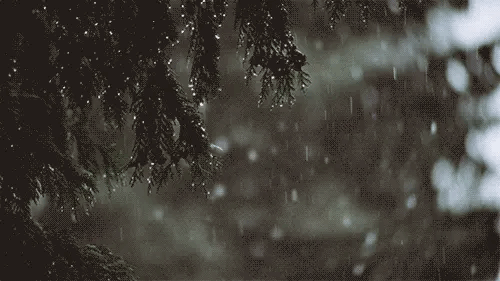
sìde (f)/aimsir (f) — weather
Cò ris a tha an t-sìde coltach (an-dràsta/a-nis/an-diugh)? — What is the weather like (at the moment/now/today)?
Tha i... (a-muigh) — It is... (outside)
fuar — cold
blàth — warm
teth — hot
fliuch — wet
gaothah — windy
sgòthach — cloudy
ceòthach — foggy
grianach — sunny
dorcha — dark
briagha — lovely
grànda — horrible
garbh — rough
Tha... ann — There is...
an t-iusge — rain (“the water”)
sneachd — snow
reòthadh — frost
tàirneanaich — thunder
dealanaich — lightning
166 notes
·
View notes
Photo
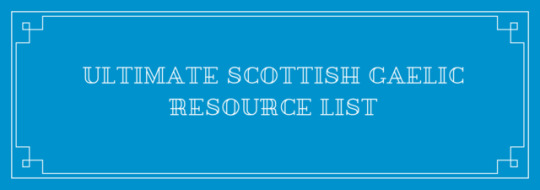
this post is meant to be a directory of every resource I come across for Scottish Gaelic. It will be a continuous work in progress so thank you for your patience! also, please let me know if any of the links suddenly stop working.
courses
learngaelic
memrise
taic.me.uk [downloadable pdfs!]
dictionaries
a pretty big glossary
megapost of dictionaries
grammar
adjectives
articles
articles: forms
articles: nouns beginning with B,P,F,M
articles: nouns beginning with C,G
articles: nouns beginning with s
articles: nouns with initial vowel
articles: nouns in s followed by l, n, r or a vowel
articles: nouns with an article
denoting possession
personal pronouns
possessive pronouns
syntax
literature
gutenberg - virtual library
poetry
songs
spiritual poems
news
bbc
pronunciation
consonant sounds
vowel sounds
quizzes & exercises
vocabulary games
radio
bbc
tumblrs
@ambi-alba
@sgribhisg
verbs
dependent form of the verb “bi”
verb forms
vocabulary
wiki phrasebook
swadesh list
378 notes
·
View notes
